The health of air conditioners, in general, can be tested with our senses--if they cool up a room, stay relatively silent, and don't smell, it means it's working well, and you can go on your day. However, what do you do when you start heating rattling noises? Of course, it can't be brushed off, so we have listed the causes for you.
The rattling noise is most likely caused by a structural issue--a misaligned fan, loose panel door, a broken motor, or debris on the unit.
- If the fans are not aligned, you can adjust them yourself by opening the panel door and fixing the screws on the fans.
- If the problem is caused by a loose panel door, tighten the screws along the cabinet door to secure them.
- If the problem is in the damaged motor, you will need to replace it altogether. Be sure to contact a professional if you cannot do it yourself.
- If there is debris on the unit, pick them away with a bristled brush.
Portable air conditioners are useful appliances that you can easily transfer from another room when needed. However, with convenience can come unpredictable quirks. If you want to learn more about issues you may encounter with portable ACs, keep reading below.
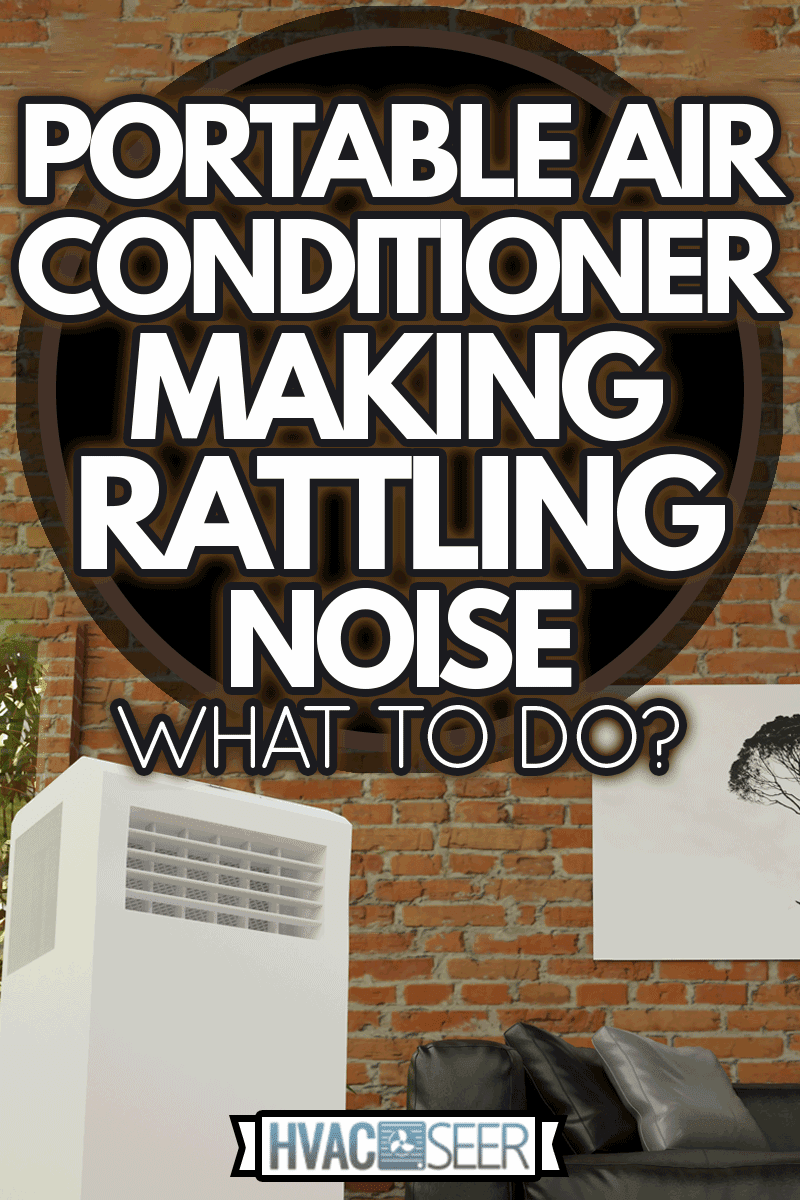
What to do when portable AC makes rattling noises
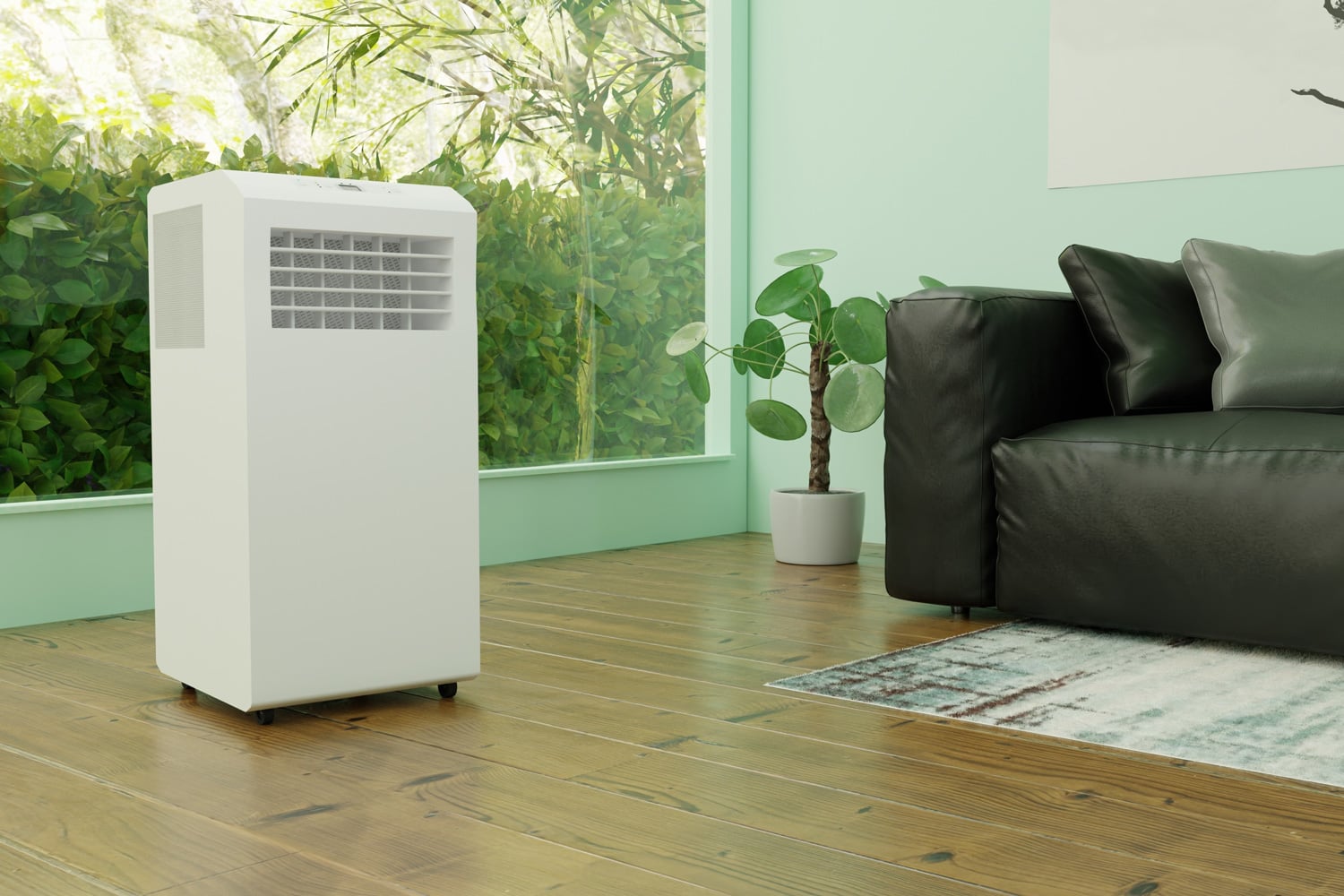
When you notice strange noises coming out of your portable air conditioner, it's time to pay attention to it.
Further neglect will cause it to break down more and result in more expensive problems, so it is important to get a proper diagnosis. If you're not confident about fixing it yourself, you can seek help from an HVAC professional.
Adjust the fans
When the fans are misaligned, it can cause the blades to hit the panels which results in a rattling noise. Fortunately, the solution for this won't require special tools or getting your hands inside the anatomy of the unit.
- Unplug the portable unit to avoid accidents.
- Push the fan blades using a stick entered through the grills.
- Adjust the blade that looks misaligned using your free hand. Make sure it is even with the rest of the blades; even having a 1-centimeter difference can cause noise.
Tighten the panel door screws
If you're lucky, this is probably the only issue with your portable AC. It has the simplest fix, and you don't have to be an HVAC expert to fix it.
Panel door screws become loose if they weren't screwed in properly, causing them to weaken over time.
When you turn on your portable AC, the rattling noise could have been caused by the small continuous motion of the panel door every time the machine powers up.
- Inspect the screws on the panel using a screwdriver.
- Tighten them if you notice the screws wobbling.
Put away dirt or debris on the unit
Pet hair, small items, and dust can cause your portable AC to act out. When the unit powers on, the entire machine wakes up and moves its internal parts.
If you have a lot of dirt inside, they will most likely be affected by the motion and create a strange rattling noise.
It is important to immediately put away any foreign objects that could have been lodged inside since they could potentially damage any part of the portable AC.
- Get a bristled brush, cloth, and a coil cleaning solution.
- Remove solid debris and dust using the brush. If there's too much, you can use a vacuum cleaner.
- Wipe the coils with a special cleaning solution.
Replace the motor
You may need to replace the fan motor if the damage is serious. This may be inevitable since it is the most active part of a portable AC, but you need to be alert for when it starts to wear out.
You can test the fan motor first before doing anything with a volt-ohmmeter.
- Remove the power source from the portable AC
- Clip the volt-ohmmeter to the wires
- If the reading is beyond 30 ohms, you need to get your fan motors replaced.
Please make sure you seek help from an HVAC professional when replacing the motor since it can be too dangerous for a non-professional to handle.
What to do if the portable AC starts squealing?
You may hear your portable AC squealing when you power it up after a long time. This just means that the frozen lubricants need time to thaw so they can effectively cool your space.
Wait for about 5-10 minutes and observe if the squealing noise persists. If it goes on, it may be time to contact a professional.
The worst-case scenario could be a problem with the fan motor, but if you haven't been using the machine too much, it is best to get a better diagnosis from an expert.
Read: "AC Hums But Won’t Start—What’s Wrong?"
What to do if your portable AC has whistling noises?
Whistling noises often indicated clogged vents or a leaking duct. Fortunately, this has a relatively simple fix that doesn't require too much technical know-how.
You may only need to clean or replace the filters, clear out anything from the vents, and repair cracked ducts.
- Apply 181 foil-backed tape over the cracks. These cracks allow air to escape, creating a whistling noise.
- Wrap the tape around the duct, overlapping over one another for optimum sealing.
- You can seal this further with mesh and duct mastic, protecting the duct from any other cracks.
Read: "How Loud Is A Goodman Air Conditioner?"
How to Clean Portable AC
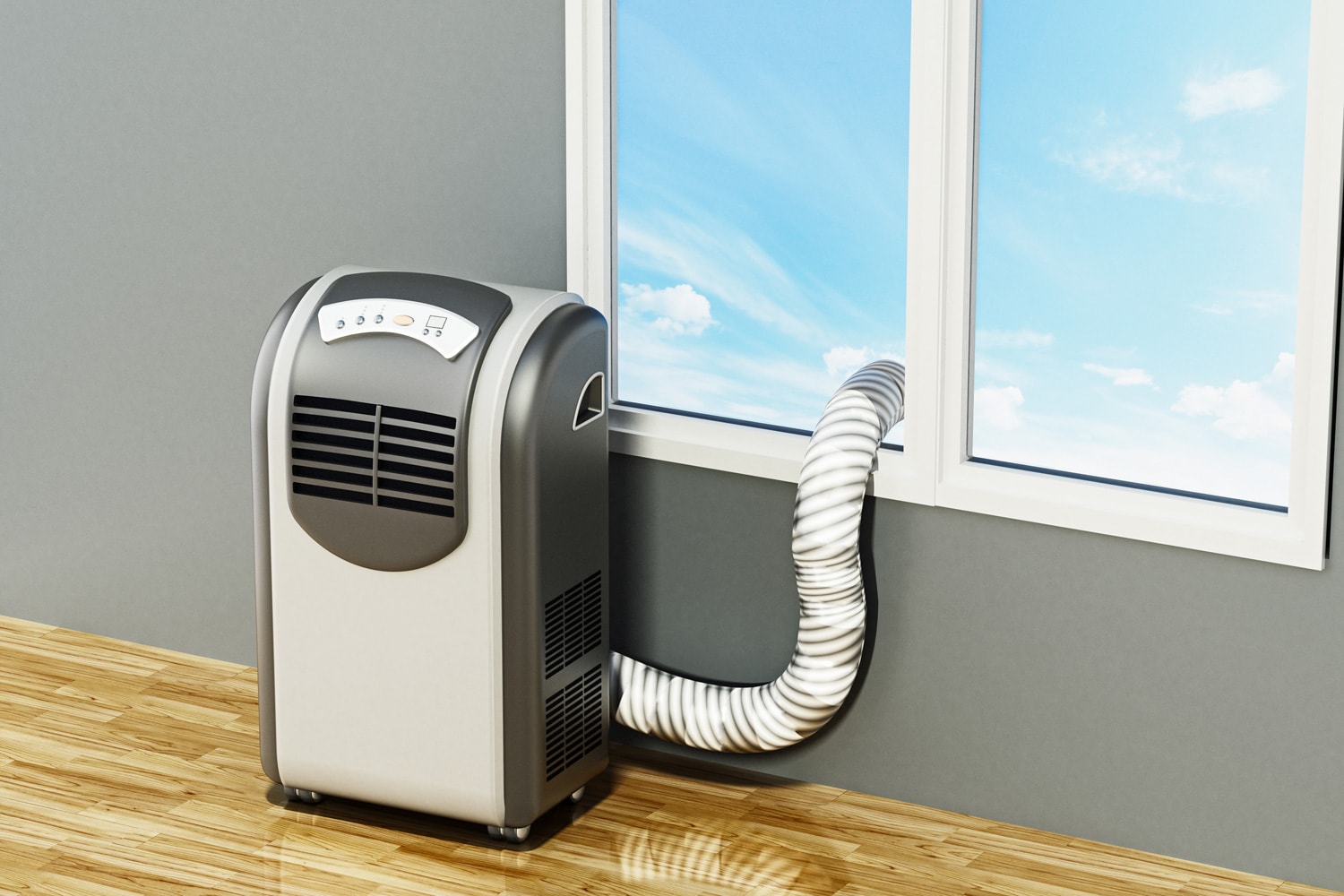
Portable air conditioners can be a life-saver during the sweltering heat of the summer. You wouldn't want any inconveniences happening when your portable AC is most-needed, so the wise thing to do is to clean it at the beginning and end of every season.
If you use the unit often, you will need to drain it every day--ideally, every 8 hours. Of course, the more humid your area is, the more often you will need to clean and drain the machine.
Here is how you can effectively clean your portable AC and have it ready to go each season.
Replace Filters
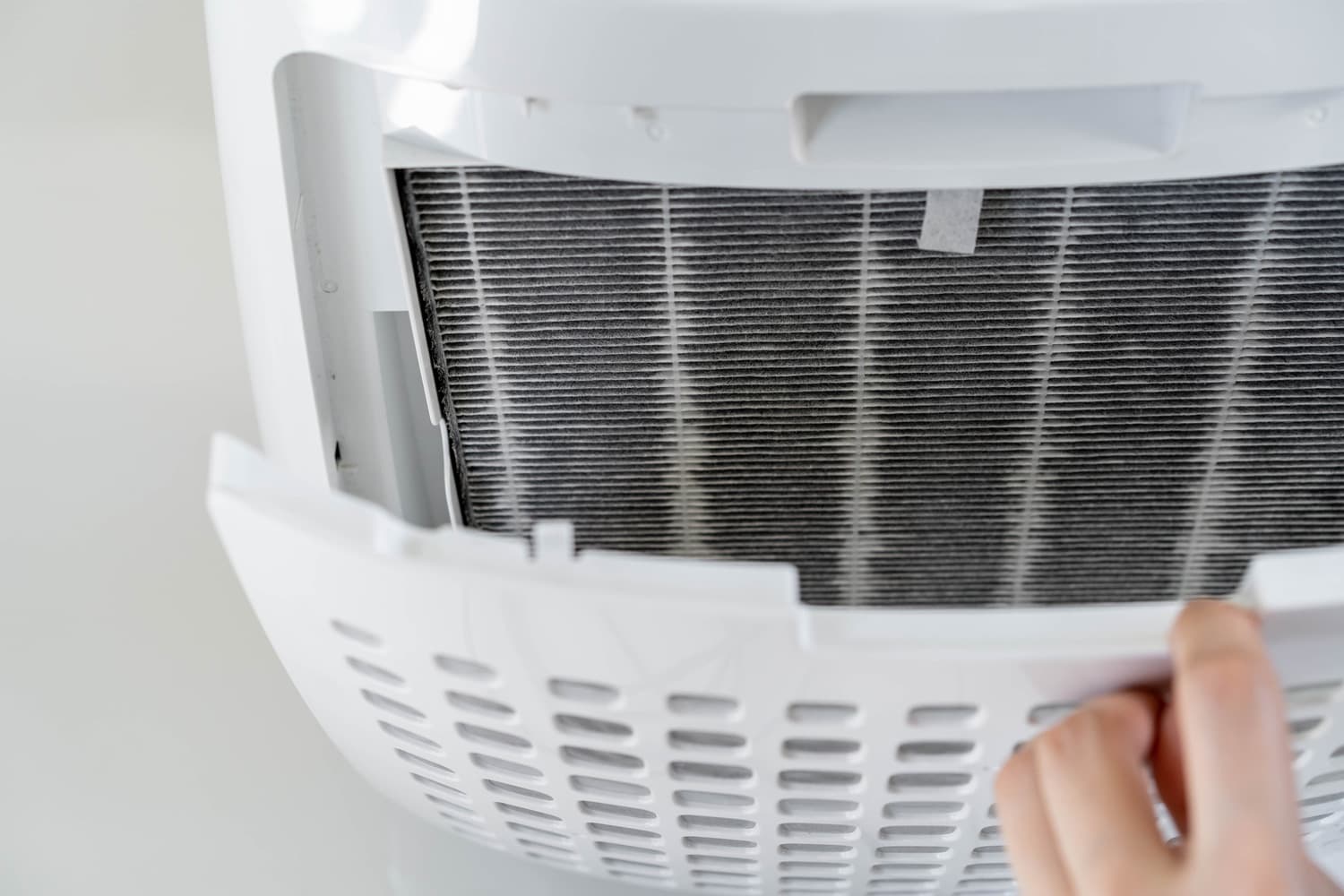
Filters catch all the debris and dirt that goes into your portable AC. This makes it more vulnerable to clogging, so you will need to pay more attention to this so you won't be caught off-guard as to why your unit is suddenly not circulating air well.
If the filters are clogged, your unit will need to work twice as hard to get to your desired temperature. This will result in the machine overworking and--worst-case scenario--damaging the compressor.
You will need to determine whether your filters are disposable or washable so you can do the necessary job more efficiently.
Drain the Water
Depending on the humidity, your portable AC will be collecting large amounts of water from the air outside. It is essential that you remove the water from the tank so the unit will keep functioning properly.
- Locate the drain at the back of the unit.
- Drain the water from the unit and let the water spill inside a bucket or outdoors.
One hack you can do if you don't want to regularly check the tank is to get a portable air conditioner that allows a hose to connect to the drain so water can exit on its own.
Clean the coils
The coils are another highly essential part of your portable AC. They are part of a system that allows cool air to be expelled into your space, so letting them collect dirt could lead to serious damage.
Dirty coils, just like clogged filters, can decrease the performance of the portable AC. It can also result in higher utility bills, with the unit working twice as hard because of the debris.
Since the coils can be fragile, you can hire a professional to clean them. However, you can also try doing it yourself.
- Get a special coil-cleaning solution and put it on a damp cloth.
- Gently wipe away the debris that has accumulated on the coils. You can also use a bristled brush to remove foreign objects.
Wipe the surface
You can add this to your regular cleaning routine since it is relatively low-effort. Use a cleaning solution and a fiber cloth to wipe the exterior of your unit.
This will ensure that no pet hair or small dust gets into the machine, ensuring that it performs well.
Final Thoughts
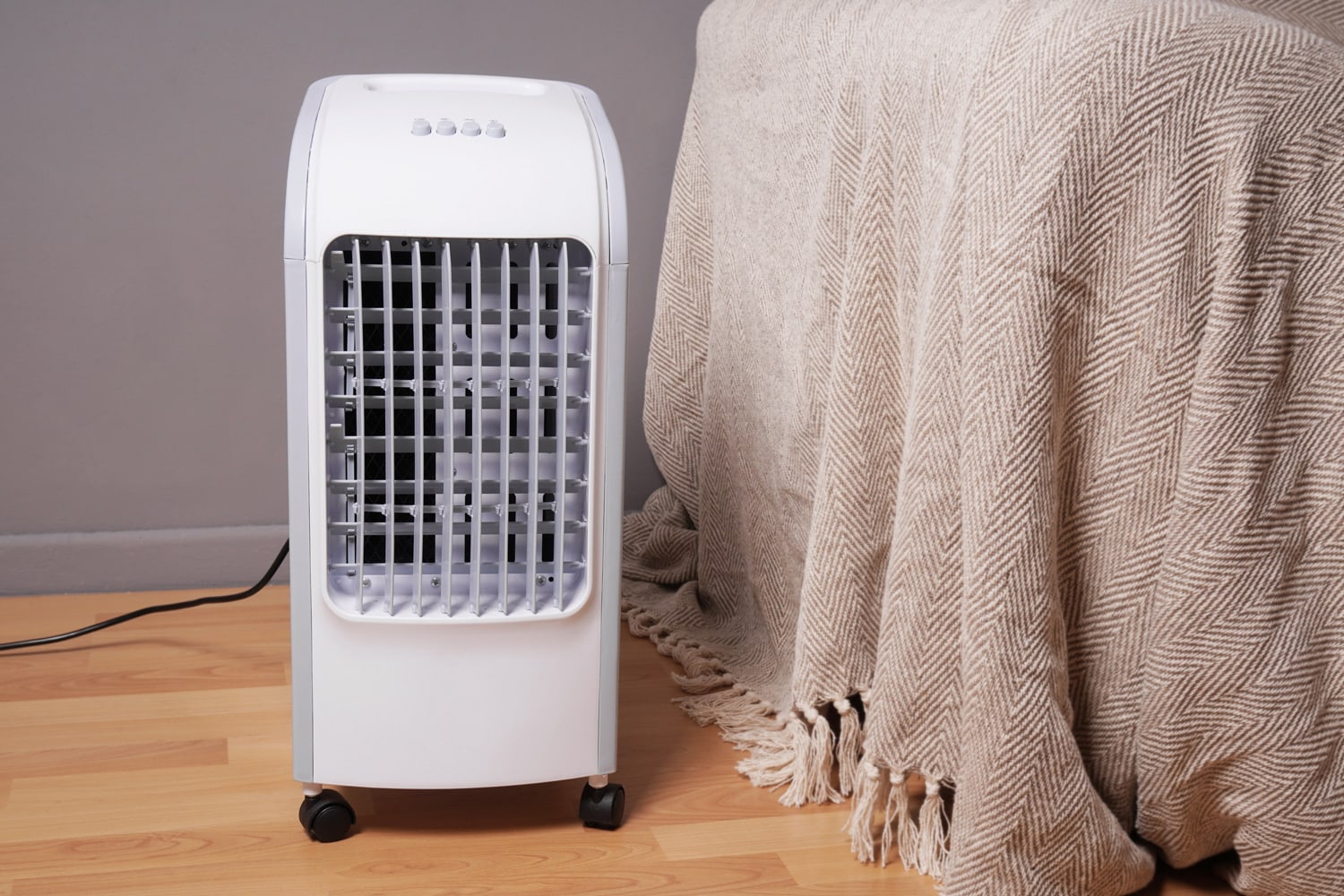
Portable air conditioners are excellent at cooling down a space. Though they are not as high-powered as regular air conditioners, their mobility is a useful perk, especially in smaller spaces.
Make sure to regularly clean the machine to prevent issues from arising.
